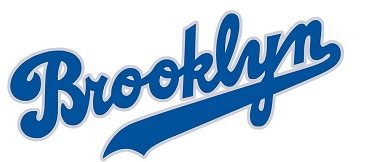A history quiz is a quiz that primarily tests a student’s knowledge of history. The quizzes allow students to receive feedback regarding their strengths and weaknesses in history, which can help them improve their understanding of difficult concepts.
These types of quizzes are primarily used in the classroom instead of being given as homework. Some teachers may create their own history quizzes, but many students use free quiz sites on the Internet to assess their knowledge of various historical facts.
These quizzes are often popular among middle school through high school-aged students since they provide entertainment with the added bonus of allowing the students to check how much they know about history.
History quizzes are fun
History is one of the most difficult subjects to teach. Students are not so good at memorizing dates and names, so teachers have to rely on indirect methods to get their students interested in history. A fun way of doing this is by using quizzes about history.
History quizzes are a great way of getting students interested in history. You can set them as homework or as part of classwork.
Students find it easy to remember things that they have learned through fun quizzes on history. It’s amazing how many people have forgotten what they had for breakfast but can recite the dates of World War I without blinking an eye!
History is one of those subjects that students always seem to dread since there is no easy way of learning it. The best way around this problem is by making it fun and interesting through quizzes and other interactive exercises that help students retain information more effectively.
A recent study showed that asking questions and answering them helped people learn better than just listening to a lecture, which goes well with the idea of quizzing techniques which help make learning more interesting and enjoyable for the student who has to take such a test or quiz.
History quizzes encourage reading
History quizzes also contribute to the development of a student’s reading ability. History quizzes contain several questions which require students to read and understand written material. Students must learn how to read and analyze historical writing in preparation for the tests, which will improve their reading comprehension.
Students will learn how to take an exam by studying for history quizzes, as well as how to study for an exam. These skills are important for any test they may have to take throughout school. History quizzes will also help students learn how to pace themselves during a test, so they can complete all of the questions in a reasonable length of time.
These quizzes often require students to write short answers or essays, which helps them develop their writing skills. This is important because many colleges and universities look at a student’s writing skills as part of their application process, as well as in their acceptance letters if they are accepted into the university.
History quizzes encourage students to think about what they have learned from a reading assignment or lecture before taking the quiz. This allows them to create a better understanding of the topic and answer the questions more easily.
Students can use this same strategy when studying for a test or preparing for class by making flashcards out of vocabulary words.
It provides an opportunity for students to discuss what they have read with their classmates. After completing a quiz, students can share their answers with each other and compare their thoughts on various topics. In doing so, they learn about their peers’ interests and perspectives, which can help them broaden their own views on history.
Furthermore, history quizzes allow students to use what they have learned in class about a particular topic or time period in order to answer questions about that topic or time period.
Read more: Why You Should Go For Abroad Study In Canada? A Quick Guide
This is a key part of learning history. Students should not simply memorize dates and names; rather, they should be able to apply what they have learned from class to real-life situations and events as well as historical situations.

